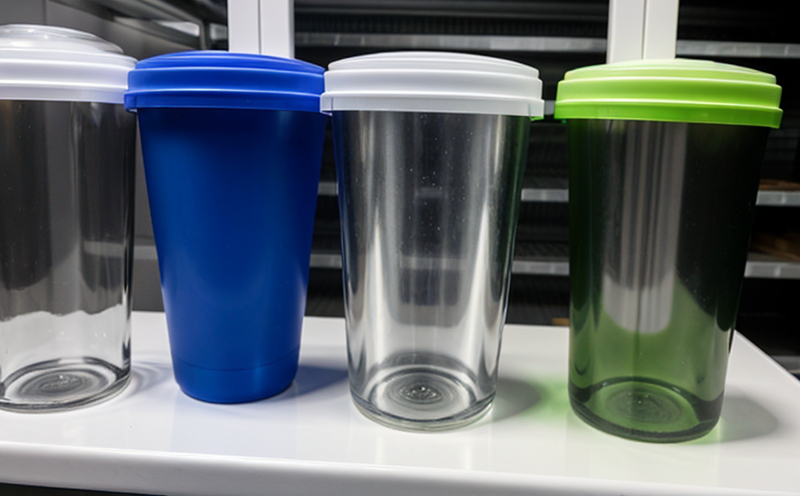ASTM C1048 Heat-Treated Glass Testing
The ASTM C1048 standard specifies a method for evaluating the heat-treated properties of glass, ensuring it meets specific performance requirements under thermal stress. This is crucial in sectors like construction and automotive, where durability and safety are paramount.
Heat-treated glass undergoes controlled heating followed by rapid cooling to induce surface compressive stresses. This process enhances the glass's resistance to impact and temperature shock compared to annealed glass. ASTM C1048 testing is designed to verify that these properties have been achieved, ensuring product reliability and safety.
The test involves placing a specimen of heat-treated glass into a furnace where it is subjected to specific thermal cycles. The temperature profiles during heating and cooling are critical in assessing the glass's ability to withstand sudden changes in temperature without fracturing. This testing method is essential for industries relying on high-performance safety glass.
The ASTM C1048 protocol provides detailed instructions on specimen preparation, furnace setup, and measurement techniques. Compliance with these standards ensures that the tested specimens accurately represent real-world applications, thus providing reliable data to quality managers and R&D engineers.
Understanding the specific requirements of ASTM C1048 is vital for manufacturers aiming to meet international safety regulations. This includes understanding the criteria for acceptable variations in thermal stress, which can impact product performance and marketability. For instance, excessive deviations from standard conditions could lead to subpar products that fail real-world stress tests.
The test also evaluates the glass's ability to withstand high-temperature cycling without losing its structural integrity. This is particularly important for applications like insulating windows in buildings or safety windshields in vehicles. By adhering to ASTM C1048, manufacturers can ensure their products meet stringent quality benchmarks and are trusted by consumers.
Compliance with ASTM standards like C1048 not only ensures product reliability but also enhances market credibility. This is especially true for companies exporting goods internationally, where adherence to global safety standards is a prerequisite.
Why It Matters
The importance of ASTM C1048 testing cannot be overstated. It ensures that heat-treated glass meets the stringent performance criteria required for safety and durability in various applications.
- Safety Standards: Ensures that glass products can withstand thermal shock without fracturing, reducing the risk of accidents and injuries.
- Regulatory Compliance: Adherence to ASTM C1048 helps manufacturers comply with international safety regulations, which is crucial for exporting goods.
- Product Reliability: Testing according to this standard guarantees consistent product quality across batches and manufacturing runs.
- Consumer Trust: By meeting ASTM C1048 standards, manufacturers can build a reputation for producing reliable and safe products.
The rigorous testing process outlined in ASTM C1048 ensures that glass products not only meet but exceed the expectations set by regulatory bodies. This is particularly important for industries where safety and performance are critical factors.
Benefits
- Enhanced Durability: ASTM C1048 testing ensures that glass withstands high-temperature cycling without losing its structural integrity, making it ideal for safety-critical applications.
- Better Safety: By adhering to this standard, manufacturers can reduce the risk of accidents and injuries associated with glass breakage.
- Improved Quality Control: Regular ASTM C1048 testing helps in identifying potential issues early in the production process, leading to improved quality control measures.
- Increased Market Trust: Compliance with international standards enhances consumer trust and satisfaction, which is crucial for brand loyalty.
Competitive Advantage and Market Impact
Adhering to ASTM C1048 testing provides a competitive edge by ensuring that heat-treated glass products meet the highest safety standards. This not only enhances product reliability but also boosts market trust, which is crucial for brand loyalty.
- Global Market Access: Compliance with international standards opens doors to global markets where strict safety regulations are in place.
- Innovation and Development: By staying abreast of the latest ASTM standards, manufacturers can incorporate innovative features into their products, enhancing market appeal.
The rigorous testing process ensures that heat-treated glass meets stringent performance criteria, making it a preferred choice for industries relying on high-performance safety glass. This reliability and consistency in quality are key differentiators in the competitive landscape of glass manufacturing.





